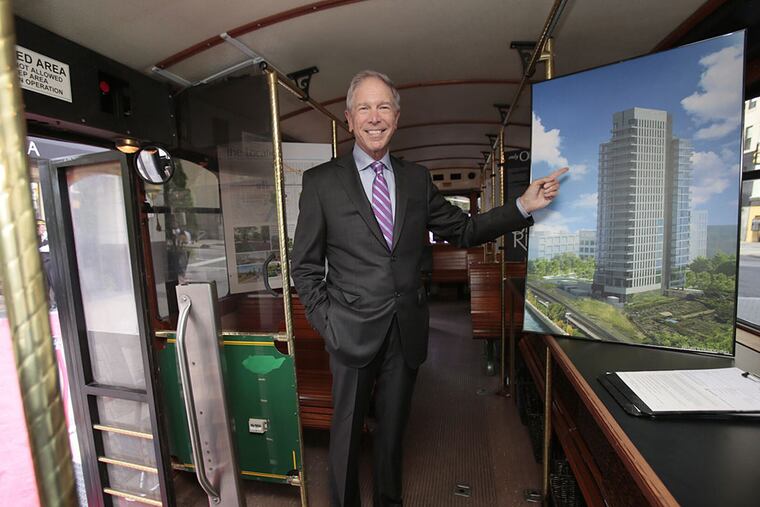Center City District: Housing boom continues
The housing boom rolling across central Philadelphia showed no signs of weakening last year, according to data released Tuesday, but a population exodus could be on the near horizon if little is done to fix the city's schools and tax structure.

The housing boom rolling across central Philadelphia showed no signs of weakening last year, according to data released Tuesday, but a population exodus could be on the near horizon if little is done to fix the city's schools and tax structure.
The news was mostly positive out of Center City District's annual housing report, which found that 1,983 new apartments, condos, and houses between Girard and Tasker Avenues, and the Schuylkill and Delaware River hit the market in 2014, thanks to an influx of empty nesters and young professionals, said CCD chief executive Paul Levy.
That number was down 8.5 percent from the record-breaking 2,168 logged a year earlier. But Levy and his staff concluded that demand for the torrent of new construction of homes and apartments would be strong for at least several more years.
"Property is selling for more. It's selling more quickly," Levy said.
"In every single neighborhood, asking rents went up," he said, except for Rittenhouse Square.
With an additional 3,681 new units expected to be built over the next three years, there appeared to be no need to worry about overbuilding. CCD forecasts, Levy said, put the number of new households formed by people moving into Center City at 6,226 between 2015 and 2018.
"There is strong, consistent demand to support what's being constructed at this point," he said.
But one data crunch performed by CCD staff pointed to something disturbing: an outflow from central Philadelphia over the last decade of people in their 30s and early 40s.
"We're not retaining these people" as they enter the phase of life when they have children and as their careers are advancing, Levy said.
Even with a second Comcast tower planned, the number of office jobs in Philadelphia has not recovered from the recession.
In 2000, Levy noted, Philadelphia boasted 157,534 office jobs. In 2014, that number was markedly lower, at 132,304.
"Most other cities post-2011, -2012 have rebounded with office-sector jobs," Levy said. "This is a cautionary flag."
With a new mayoral administration coming in next year, Levy said, the time was right for city leaders to take aggressive action on the jobs and schools front, given how crucial both are to retaining residents.
Much of the demand driving the downtown housing market is empty nesters' moving in from the suburbs. But much also is young professionals in the "millennial" demographic group, a cohort so huge nationally that its sheer numbers are causing a surge of in-migration in the city, he said.
"Without sustained jobs growth or sustaining the schools . . . we're not going to be able to support this demographic demand," Levy said.
The CCD report looked at two sections of central Philadelphia: Core Center City, bounded by Vine and Pine Streets and both rivers; and Greater Center City, which extends south to Tasker and north to Girard.
Most of the new housing that came online last year in Core Center City - 647 of 665 units - consisted of apartments, with a large number created by two development projects, 1900 Arch and Icon at 1616 Walnut St.
Most of the growth in new, for-sale housing to hit the market was seen in periphery neighborhoods that extend toward Tasker and Girard, and where vacant lots were converted to infill new development.
Overall, about the same number of houses sold last year as in 2013 across the Greater Center City area. But prices and the speed of transactions rose, while the number of days on the market dropped. The average sales price in that area increased 6 percent.
Of the 3,681 units in progress, 75 percent are apartments, 15 percent are single-family homes, and 10 percent are condos.